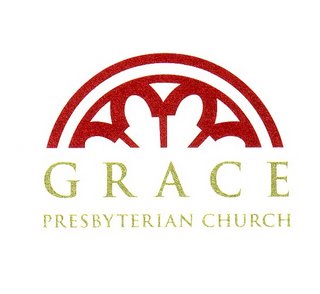Calvin’s Doctrine of the Church (VIII)
 Getting Back to Basics
Getting Back to BasicsMuch—some would argue most—of modern worship has abandoned the idea of searching through the Bible to see how God would have us worship him. Those of us living at the front-end of the 21st century seem more concerned with “authenticity” (pastors that speak of all their secret sins and temptations) and a full-orbed, unashamedly consumer approach to church/community/tribe than we do with worshipping our Lord in a manner that is according to his will and is, therefore, honoring and pleasing to him.
A truly novel approach to worship in the 21st century would be one that paused and asked the question: What does the Word of God say about worship? Modern “worship” services could just as well be renditions of American Idol, Desperate Housewives, or Dr. Phil—rather poorly done. (This is not to suggest that any of the programs mentioned above are actually done well.)
Since it is precisely Calvin’s doctrine of the Church that we are examining, it is to Calvin we shall go. By way of explanation (and methodology) I should disclose that I firmly believe that our theology is not and cannot be compartmentalized. That is to say, if we’re discussing the Church—which we are—that we should not neglect other facets of what we believe, say, about our doctrine of Scripture. In fact, these two—as well as all other aspects of our theology—hang together. I want to make this point because I am now going to take us on a brief analysis of Calvin’s view of Scripture in order that we might learn how this impacts his view of how we should worship God. I must, by necessity, skate lightly and paint with a broad brush.
Therefore, I begin by giving a thumbnail sketch of Calvin’s view of the Bible and how it functions in the individual Christian’s life as well as in the corporate body: the Church. Those who have studied the Reformer at all are aware of his analogy of the scriptures as “spectacles” or “glasses.”[1] It is the scriptures that give us a precise understanding of who God is. Calvin uses the example of “bleary-eyed” men and those with weak vision being required to read some “beautiful volume.” He admits that these men might be able to recognize what is thrust before them as “some sort of writing” “But with the aid of spectacles will begin to read distinctly; so Scripture, gathering up the otherwise confused knowledge of God in our minds, having dispersed our dullness, clearly shows us the true God. This, therefore, is a special gift, where God, to instruct the church, not merely uses mute teachers but also opens his own most hallowed lips. Not only does he teach the elect to look upon a god, but also shows himself as the God upon whom they are to look.”[2]
His argument is from general to particular. We have flitting around in our brains a conception of what God is like and what he would or would not like in worship—if we even stop to pose what biblical worship ought to look like! It is Scripture and Scripture alone, Calvin argues, that will gather up our otherwise confused knowledge of God and give it precision. Scripture shows us the true God. The instruction of the Bible is meant to be used by the church, because the words contained in it are the very words from God’s lips. Our Lord takes us by the hand and shows us the God upon whom we are to look.
In Inst.1.6.2, McNeill and Battles chose the heading “The Word of God as Holy Scripture.” Following up on what he began to teach in 1.6.1, Calvin writes, “At any rate, there is no doubt that firm certainty of doctrine was engraved in their hearts, so that they were convinced and understood that what they had learned proceeded from God.”[3] Calvin believes it is proper for man to consider the works of God’s hands, but he must not remain there. What is man to do? He is to “prick up his ears to the Word, the better to profit.”[4]
Unfortunately, experience does not bear out that man is teachable with a view to what the Bible teaches. In fact, Calvin is convinced that “there are very few who, to contain themselves within bounds, apply themselves teachably to God’s Word, but they rather exult in their own vanity.”[5] Today, instead of vanity we would use words like “creativity.” A great deal of will-worship or the consumer mentality is the step-child of a pastor’s or staff’s “creativity.” Rather than creativity, our Lord is looking for obedience. What passes for creativity today is, as often as not, about one-half step away from heresy.
Calvin continues: “Now, in order that true religion may shine upon us, we ought to hold that it must take its beginning from heavenly doctrine and that no one can get even the slightest taste of right and sound doctrine unless he be a pupil of Scripture.”[6] This being Calvin’s assessment we can easily “connect the dots” from the individual to the body of Christ, the Church.
Of course, at this stage in the downward spiral of the modern Church (both in its mega-church and Emergent Church movements) you really do have to stop and wonder if this ever gets past the individual. Moreover, does the individual ever stop and reflect on right and sound biblical doctrine? Surely, thankfully, some do. I also believe, however, that a case can be made that far too many do not. The progression (or regression) is that individuals don’t know good biblical doctrine nor do they care to know it. A number of pastors have long since given up on knowing and/or teaching right and sound doctrine so whatever they wish to do is just fine with the congregation as long as it keeps them happy and coming back; it is part of the consumer’s entertainment on Sunday. Calvin maintains that it is to the decided benefit that both faith and right knowledge are born of obedience to the Word of God.[7] What holds for the individual Christian holds no less equally for the corporate body of Christ and the worship we offer to the Lord God Almighty. Yet you really do have to wonder how this notion of Calvin’s has played out in the modern Church setting.
Citing John 5:39, Calvin reminds us that “it pleased the Lord to hallow his truth to everlasting remembrance in the Scriptures alone. Hence the Scriptures obtain full authority among believers only when men regard them as having sprung from heaven as if there the living words of God were heard.”[8] Or, put another way, Scripture is “…the eternal and inviolable truth of God.”[9] This being the case, it would seem that pastors, church leaders, worship leaders, and individuals would meticulously search the Word of God to ascertain what is pleasing to him rather than want is pleasing to them. It is an age old adage that “Scripture exhibits fully as clear evidence of its own truth.”[10]
It’s precisely here that the modern Church is called to move from a formal view of the infallibility and inerrancy of Scripture to a material one. What do I mean by that? Precisely this: it’s one thing to confess that Scripture is our “norming norm” formally, but then refuse to bow to its authority practically when it comes to the matter of worshipping God. It is lamentable that so few mainline evangelical churches take the requisite time to ponder just how our God wants to be worshipped. More time is spent trying to figure out how the “audience” will respond to the praise band than how to follow God’s mandates in terms of worship.
Ralph Gore points out an interesting item in Calvin’s sermon on Deuteronomy 5:8-10. We’re going to take a more in depth look at the Ten Commandments in Calvin’s concept of worship later, but it’s instructive at this juncture to note that according to the Reformer “the Word must lead us because of our own sin and our propensity to idolatry” and “God is please with our obedience to his commands. Thus, ‘we are to follow in all simplicity what he has ordained by his Word, without adding anything to it at all.’ For Calvin, then, the only way to guarantee legitimate worship is to obey the commands of the Word.”[11] Therefore, according to Carlos Eire, “for Calvin, acceptable worship is that which is conformed to the Word of God and not the product of human invention.”[12]
This, of course, begs the question: How do we then decide what is pleasing and acceptable to our Lord in our gatherings for worship? This questions strikes at the very heart of the modern “worship wars.” It remains to be seen whether churches will, in fact, pause and reflect and, where necessary, adjust their worship services to bring them more in line with what Scripture teaches. No doubt for some this will be a major adjustment if not an entire paradigm shift. Others will simply ignore what Calvin says for any number of reasons, not the least of which is the real possibility of people leaving. I must admit that I don’t quite comprehend why this is even an issue. If people leave because we are instituting and implementing biblical worship doesn’t that tell you something?
Naturally, if a local congregation is going to make changes those do not all have to be made in one fell swoop. It would be Christian prudence to inform the congregation of the upcoming changes and precisely why the church leadership was making the changes in worship. Members should be permitted to ask whatever questions they had, but with the knowledge that the leadership was convinced that what was more honoring to God was a worship service along the lines of what Scripture prescribes.
Would some people leave if such changes were implemented? Possibly. It’s sad, but these types of things occur, especially in a spiritual milieu where consumers have been catered to and spoiled for decades. If they leave in droves, you find yourself in the midst of a “Scottish” revival. Seriously, the arguments in favor of moving to a more biblical worship style far outweigh the arguments against it. Having laid this groundwork, it is now a more proper time to delve into Calvin’s explanation of worship as he explains it from the first four commandments of the Ten Commandments.
It is an accepted truth that the first table of the Ten Commandments deals with man’s relationship to God while the second table deals with the Christian’s relationship to his fellowman. It is also a known fact that Calvin shared a deep love and reverence for the Hebrew language along with his friend, Heinrich (Henry “Hank”) Bullinger. In working out their respective covenant theologies (Bullinger is a must read on understanding covenant theology), both of these Reformers stressed the unity of the testaments and, therefore, the place of the Ten Commandments in the life of the Christian.
We’ll pick it up next time by beginning to observe how the first four commandments of the Ten Commandments can guide the modern Church in her understanding of building a biblical, God-honoring, Christ-centered, and Spirit-directed worship.
[1] This argument is found in Inst.1.6.1; 1.14.1; and in the “Argument” in his commentary on Genesis, Calvin writes, “For by the Scripture as our guide and teacher, he not only makes those things plain which would otherwise escape our notice, but almost compels us to behold them; as if he had assisted our dull sight with spectacles.”
[2] John Calvin, Institutes of the Christian Religion, Vol. 1, (John T. McNeill [ed.] & Ford Lewis Battles [trans.]), (Philadelphia: The Westminster Press, 1960), p. 70. All future references in this article will cite the “McNeill/Battles edition with the appropriate volume number.
[3] Inst.1.6.2, 1:71.
[4] Ibid., 1:72.
[5] Ibid.
[6] Ibid.
[7] Ibid.
[8] Inst.1.7.1, 1:74.
[9] Ibid., 1:75.
[10] Inst.1.7.2, 1:76. For a lengthier exposition of this principle, see 1.7.5 where Calvin calls Scripture “self-authenticated” (1:80-81).
[11] R.J. Gore Jr., Covenantal Worship, (Phillipsburg, NJ: Presbyterian and Reformed Publishing Co. 2002), pp. 56-57.
[12] Carlos Eire, War Against the Idols, (Cambridge: Cambridge University Press, 1986), pp. 201-202.




